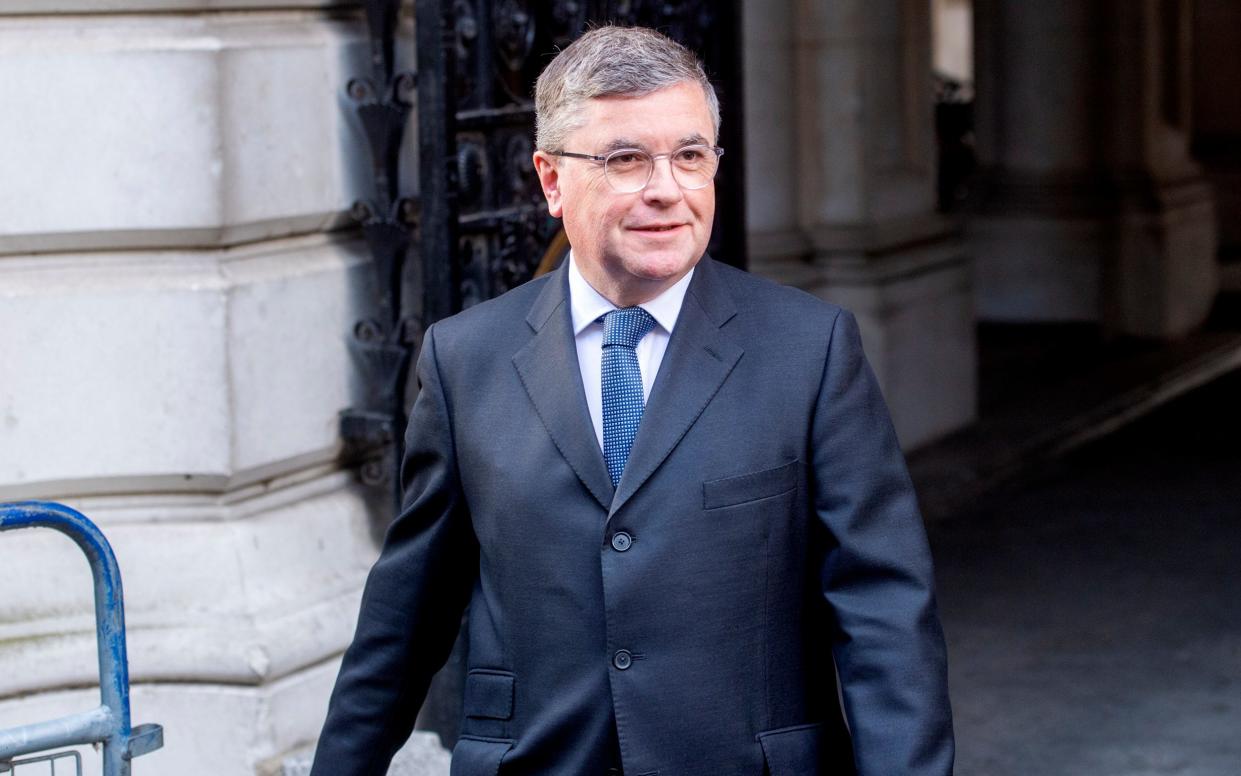Spy legislation risks criminalising journalists unless exemption is added, experts warn

A new counter-spy bill risks criminalising journalists unless specific exemptions are added, senior peers and campaigners have warned.
Ministers have been told that concessions they offered last week in their National Security Bill do not go far enough to protect journalists who expose government blunders or secrets in the public interest.
They face a series of amendments on Wednesday by senior peers in the Lords that aim to exclude legitimate journalism from the offences in the Bill and protect whistleblowers who leak government secrets in the public interest.
The Bill aims to overhaul the UK’s “outdated” spying laws to combat foreign agents suspected of helping hostile states with tougher sentences and new offences to counter cyber attacks, interference in elections and theft of trade secrets.
Ministers have maintained a three-part test in the Bill that protects against it being used to target journalists, but campaigners warned journalists could still be criminalised because the definition of “protected information” is so widely drawn it could include “non-classified” government material.
Definition of state secrets
An offence of conduct “prejudicial to the safety or interests of the UK” was also defined in such a way that it could cover all Government policy - and not just state secrets.
“The Government believes the Bill will not criminalise journalism but even after the recent amendments, there is little in the Bill to give substance to this belief,” said Nik Williams, policy officer for Index on Censorship in an article for The Telegraph.
“With such a leaky three-part test and the absence of a public interest defence or an exemption for public interest journalism, these are mere words, leaving journalists with few other options than avoiding certain topics.
“A promise from those currently in power is not enough to reassure journalists that they could not be thrown in prison simply for doing their job.
“After the Government has acknowledged the potential impact on journalism, it is vital that more is done to tighten up the Bill before it is too late. If the Bill continues as drafted, who knows what stories will be obscured from public attention.”
In the Lords, senior peers and Labour are backing an amendment that would provide journalists working for “recognised news publishers” with a defence against prosecution under the offences in the Bill.
It has been proposed by a Conservative-led group of peers including Lord Black, a life peer and deputy chairman of the Telegraph Media Group, crossbencher Lord Stevenson, Baroness Stowell, a former Tory leader of the lords, and Lord Faulks, chairman of the Independent Press Standards Organisation and a former justice minister.
Exposed as an 'ass'
An attempt to introduce a public interest defence for whistleblowers and journalists is being led by three of Britain’s top lawyers - Lord Pannick, who represented The Sunday Times in its fight to publish the MI5 memoir Spycatcher, Lord Garnier, a former Tory solicitor general, and barrister Lord Marks, a LibDem peer.
It is backed by former justice secretary Robert Buckland who warned the law could be exposed as “an ass” unless the Government provided a legal defence for whistleblowers who expose wrongdoing or misconduct in the public interest.
He said the onus had to be on the leaker to justify their actions but there was a danger that without the Government providing a clearly-defined defence, juries would take the law into their own hands and make their own judgments about what could be leaked.
On Tuesday, Labour tabled a series of amendments seeking to force the Government to formally consult on the introduction of a public interest defence.
Michelle Stanistreet, NUJ general secretary, said: “Without the necessary protections, including a public interest defence to adequately protect press freedom, journalism remains under threat. Government risks creating a chilling effect, silencing journalists and journalism.”
A Home Office spokesman said: “We have a proud tradition in this country of upholding the freedom of the press. Indeed, it is our obligation to ensure journalists are able to carry out their genuine activity independent of state involvement.”
“The National Security Bill is about ensuring our world class law enforcement and security services have the tools and powers they need to tackle modern threats. The offences in the Bill target harmful activity by states, not whistleblowing or public interest journalism activities.”

 Yahoo News
Yahoo News 
